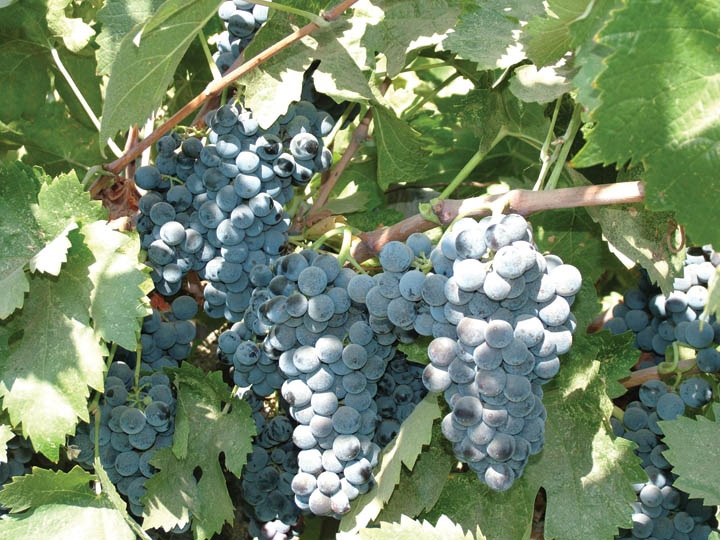April 25, 2013

The overwhelming majority (75 percent) of grape growers and pest control advisers (PCAs) surveyed by the University of California use the Gubler-Thomas Powdery Mildew Index (PMI) for making decisions about powdery mildew management.
This UC survey was conducted in collaboration with Western Farm Press and its online continuing education (CE) program. The survey specifically targeted those who had completed the CE course, “Grape Powdery Mildew Control in California Vineyards” on the Farm Press CEU portal.
UC Davis plant pathologist Doug Gubler and Travis Lybbert, associate professor, agricultural and resource economics, approached Farm Press to source the Penton Ag CEU database for the extensive survey.
Gubler was the major contributor in the development of the Farm Press powdery mildew management course several years ago and has contributed to updating a couple of times from his extensive, ongoing research efforts.
Gubler said the data gathered through the Farm Press survey was “invaluable and instrumental in allowing us to gain insight into powdery mildew control programs and reasons for use of products and use or nonuse of the Gubler-Thomas Powdery Mildew Model.” Gubler has invested three decades of research into managing powdery mildew.
This disease prediction model is not only widely used in California, but is recognized worldwide for its predictability accuracy in assessing environmental conditions conducive to powdery mildew development and when to treat for it.
“The survey that we were able to conduct in collaboration with Western Farm Press will contribute to an ongoing effort to understand how growers modify their disease management strategies based on disease forecasting models such as the powdery mildew model,” said Lybbert. “By quantifying the environmental benefits associated with these adjustments and identifying constraints on the use of disease forecasts, we also hope to improve the design, dissemination and use of these models.”
“The Western Farm Press staff and Penton Media Agriculture Group Digital Sales/Marketing team were thrilled to work with Dr. Gubler and Dr. Lybbert in conducting this electronic survey,” said Harry Cline, Farm Press. “We consider this collaborative effort with UC Davis a validation of the quality of the online Farm Press CE program initiated nine years ago with the first course.”
There are currently more than 10,000 registrants on the CEU portal from every state and more than 60 countries. Almost 70,000 courses have been completed since the CE program began. Twenty courses are not available on the CE portal. More than 20 states have accredited Farm Press courses. All courses are accredited for Certified Crop Adviser credit.
Top grape growers, PCAs
“The powdery mildew CEU course is one of the most popular ones because it was developed with the guidance of Dr. Gubler, who is recognized worldwide as a leading authority on powdery mildew management,” said Cline.
The survey was emailed to those who identified grapes as their primary crop.
The majority of the 112 respondents were PCAs (49 percent) and individual vineyard owners (36 percent). Almost 30 percent of individual vineyard owners were also PCAs. Average experience working with grapes was 16 years with 30 percent of the respondents reporting between 20 and 25 years of experience.
Just over 80 percent of the respondents reported managing up to 2,000 acres with a few respondents reporting larger operations of 10,000 acres or more.
These demographics from the survey were very enlightening to the Penton Ag CEU team. “The growers and PCAs surveyed from the CEU database represent the largest grape growers in the state,” said Cline. “This indicates to us that the pentonag.com portal is utilized by the top grape PCAs and grape growers in California.”
There are currently 20 CEU courses offered at pentonag.com. All are accredited by the California Department of Pesticide Regulation for all state licensees, including county private applicator certificate holders.
The survey results showed that 50 percent of the survey participants managed more than one vineyard.
Growers said they evaluated the risk of powdery mildew mostly on weather conditions and their own experience (45 percent). About a third relied heavily on the Powdery Mildew Index and PCA recommendations.
Just over 50 percent reported receiving recommendations from an external PCA. The majority of those recommendations (57 percent) came from PCAs working for their agricultural supplier. Almost 20 percent came from in-house PCAs and 16 percent came from independent PCAs.
In response to increased risk of powdery mildew, most growers frequently adjusted their treatment timing. About a quarter of them also reported switching to different chemicals and a slightly smaller group (18 percent) reported regularly adjusting treatment dosages.
The PMI was quickly adopted by those who tried it. Less than 10 percent of the growers reported discontinuing its use once they used it.
The main reason PMI is used is to reduce the probability of powdery mildew outbreaks. 55 percent reported it as “extremely important.”
The second and third most important motivations were reducing chemicals costs (20 percent) and reducing fungicide residue on berries (20 percent).
Raisin growers were the most concerned about reducing costs, and the group that placed the most importance on PMI use across all four areas of concern.
The PMI model is detailed in the powdery mildew course on the pentonag.com CEU portal. The course is offered free by Farm Press.
The UC IPM website on-site weather stations are the two primary sources for PMI data. Most respondents are located in Fresno County with others coming from San Joaquin, San Luis Obispo and Sonoma counties.
More from Western Farm Press
Times are good for California agriculture
Rush to ban neonicotinoid pesticides often political
You May Also Like




